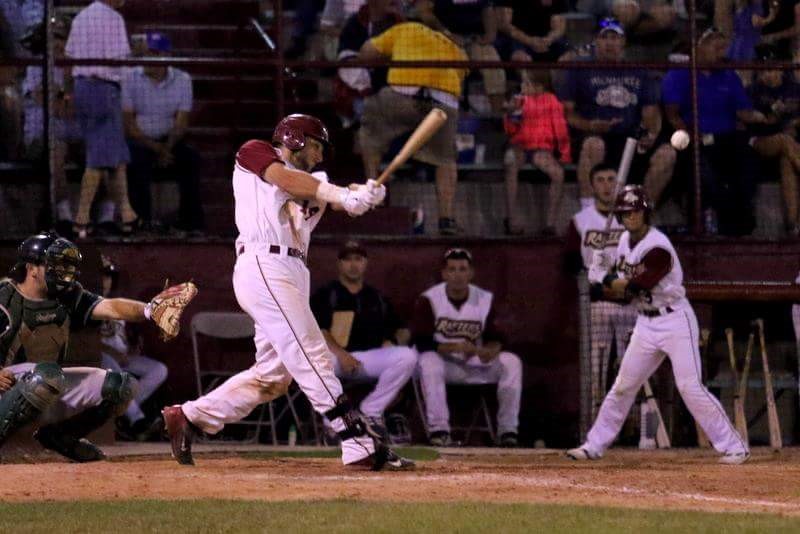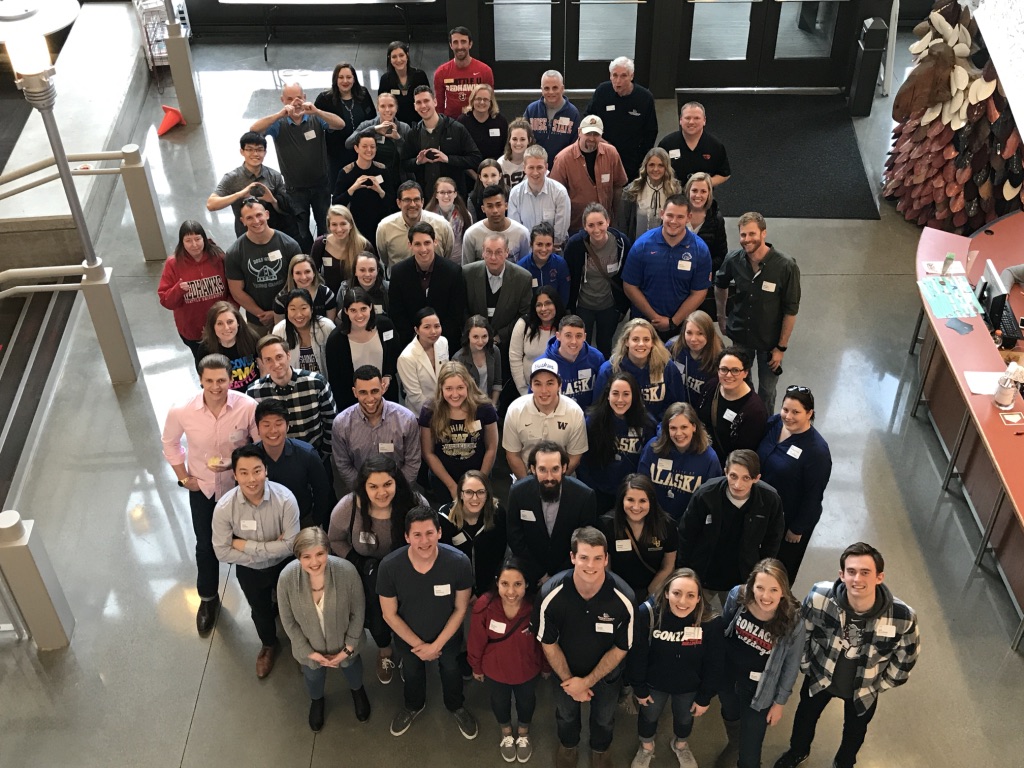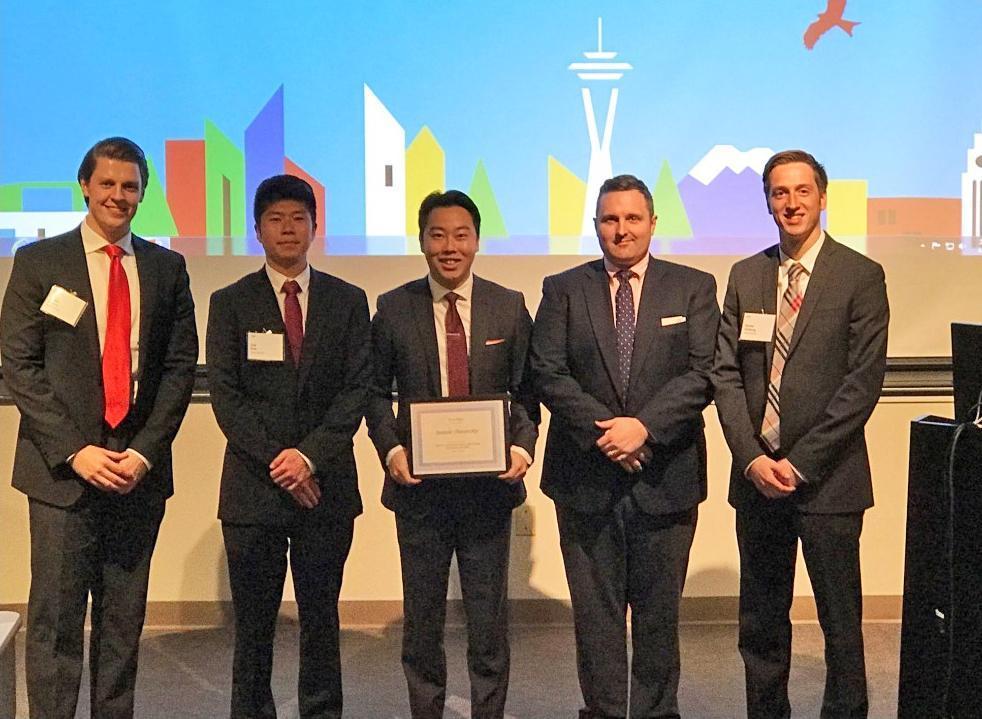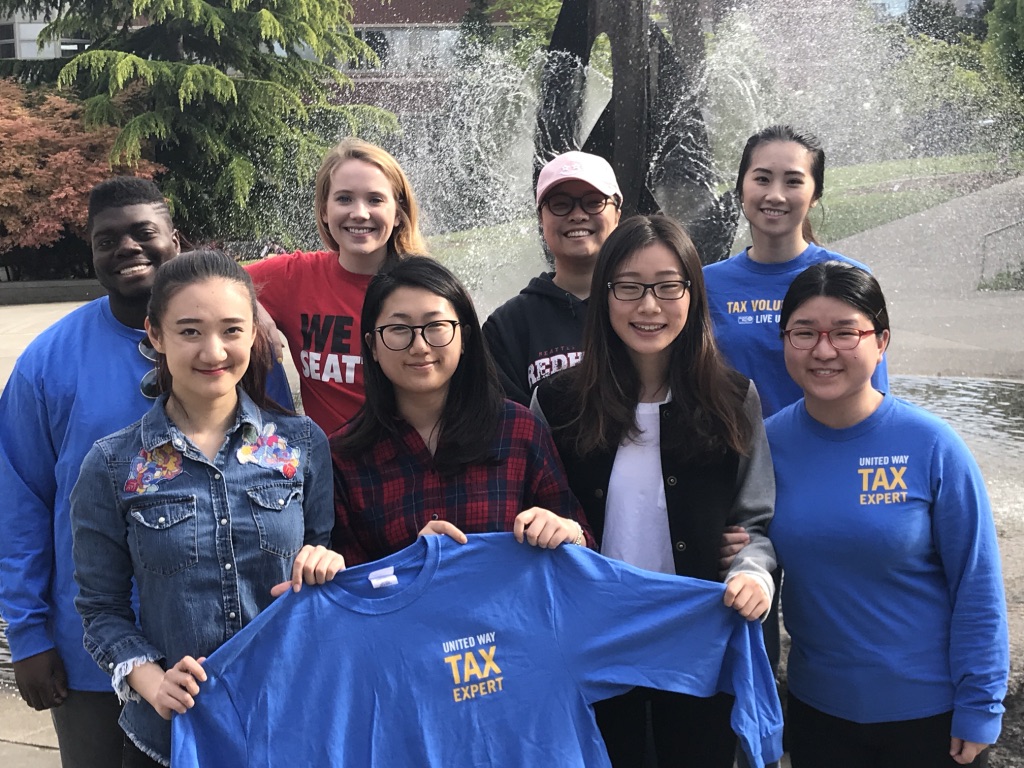
Spring 2017
Give to Accounting Associates Fund
Kansas City Royal Catcher and Albers Accounting Student Mike McCann
Current Albers Undergraduate Accounting Student Mike McCann at bat for the Arizona League Royals
Who is your sports hero and why? What do you most admire about that person?
Growing up I always idolized Ken Griffey Jr. The way he played, the way he swung, and the way he carried himself always had a certain mystique to it. Now that I have become a professional and have seen what he was able to do at such a young age, I have a different and greater appreciation for his excellence.
When did you first get interested in baseball?
The same as any other 4 year old kid. My parents signed me up for tee ball and then little league and as the years went on I noticed I wasn’t too bad at it so it just became more competitive and now here I am 17 years later still playing.
Describe a highlight of playing sports.
Probably my greatest sports memory is actually growing up playing football with all of my best friends from fourth grade to my senior year in high school. This is because football, unlike any other sport builds a certain brotherhood that is unmatched in any other sport.
Tell me about one of the SU faculty from whom you particularly learned a lot and what you enjoyed about their teaching style.
I really started to enjoy the depths of accounting once I took Dr. Kimbro’s intermediate 1 course. Her ability to link the concepts that we were going over in class with current events within the business world was something that really sparked interest for me.
Is it difficult to balance sports with school work?
When I was in college, it was extremely difficult my freshman year. But, I am so glad that I had these struggles because now I can organize my time and priorities much better to ensure that certain things get done. Also, the SU staff was always extremely flexible with our schedules as well as understanding of the difficulties of a student athlete’s day to day schedule.
What’s a typical day like for a professional baseball player?
Well with how long the seasons are and how many games are played, each day is repetitive of itself. If you are at a home series, you usually get to the field around noon, workout, and then have a mini practice for an hour or so, then go through batting practice. All of that takes you up to about 5:00. Then you have a pregame meal and get yourself ready for a 7:00 game where once it is over you will have any post game treatment that you need. Usually meaning you get back to your hotel room around 11:30. And then do it all again the next day! That is also not counting if you are on a road trip and have to take a 10 hour bus ride in the morning.
What are a couple of things you do that you feel directly contribute to your success?
Well I would like to think that I am a hard worker. My dad has always been the person I look up to in my life and he is the hardest working man I know. So with whatever I do from academics to athletics, I want to be just like him. So the model or the precedent that he has set for me has driven me to be the most successful I can be.
Are there any lessons you’ve learned doing team projects for school that have contributed to enhancing team work in baseball and/or vice versa?
Absolutely, team projects in school for a lot of people, including me, are seen as extra work that will put you out of your comfort zone. Well, this is exactly what is needed if you want to be successful in athletics. You will need to step out of your comfort bubble and stretch your boundaries in order to be a teammate that others can rely on at any point throughout the season.
What words of advice or encouragement do you have to share with other student athletes?
The number one thing that I have been able to see now that I am out of college athletics is that there are so many great people within the Seattle University family that are there to help you succeed and want that for you. Whether it is administrative staff on the athletic side, your trainers, your coaches, your professors, or your advisors. Seattle University has a first class group of people that are truly there for you the student athlete. So when things start to become difficult, whether you’re struggling in your sport or in the classroom, taking a step back and realizing that there are so many people that are dedicated to your success.
Give to Accounting Associates Fund
Ninth Annual Seattle University/KPMG Financial Accounting Case Competition

9th Annual SU-KPMG Financial Accounting Case Competition teams group photo at annual reception
For the second time in three years a record twelve teams competed in the Seattle University/KPMG Financial Accounting Case Competition! Having moved to a “two-tiered” format last year, six teams presented to one panel of KPMG judges, and the other six teams to another panel. The top teams from each group then re-presented to both sets of judges and the other competing schools to determine first and second place.
Teams that wrestled with the case included the Boise State University Broncos, the Central Washington University Wildcats, the Gonzaga University Bulldogs, the Oregon State University Beavers, the Pacific Lutheran University Lutes, the Seattle University Redhawks, the University of Alaska Fairbanks Nanooks, the University of Oregon Ducks, the University of Portland Pilots, and the University of Washington Huskies, the Western Washington University Vikings, and the Whitworth University Pirates.

The winning team from left to right - Justin Totura, Zak Kim, Trey Takara, Matthew Hansen (KPMG), and Daniel Verburg!
And the winner…! Our own Redhawk team rocked the competition, drawing praise from KPMG judges and competing team faculty advisors as well. Western Washington University was a very close second, and Gonzaga University and first-time competitors Pacific Lutheran University garnered Honorable Mentions. MVP (Most Valuable Presenter) awards were awarded to students from University of Oregon and Western Washington University.
Many thanks to KPMG for supporting this wonderful opportunity for Accounting students from across the Pacific Northwest. For more information about the competition, please contact Jani Medeiros at medeirj@seattleu.edu or 206-296-5723.
Give to Accounting Associates Fund
Seattle University/United Way of King County Low Income Tax Preparation Service

Some of the members of the 2017 Low Income Tax Prep Team pose in front of Centennial Fountain
Albers Accounting students started helping low income taxpayers file their taxes over 40 years ago! Faculty Emeritus Accounting Professor John Harding established the program in 1975 when the Internal Revenue Service called for volunteers to help the public work through the complexities of tax returns.
Over the years, Albers students have helped taxpayers receive millions of dollars in tax refunds and Earned Income Credit, bringing much needed spendable income to Central District residents and small businesses. For the 2016 tax year, our student and alumni volunteers helped prepare 726 tax returns, bringing $854,368 in refund and $284,789 in Earned Income Credit dollars back to the community.
Comments 2017 volunteer Wagane Diadhiou, "I have really enjoyed my time helping clients with their tax returns. I remember one day this lady told me that what we were doing was a blessing, and she was greatly thankful for that."
This year’s John Harding Service Award was awarded at the 45th Annual Accounting Awards Banquet held Friday, June 2. The award is given to a volunteer who personifies what the Seattle University Tax Preparation Program honors: excellent interpersonal skills, proficient judgment, and a strong work ethic. This year's recipient was Qingyi Zhang (pictured above bottom right).